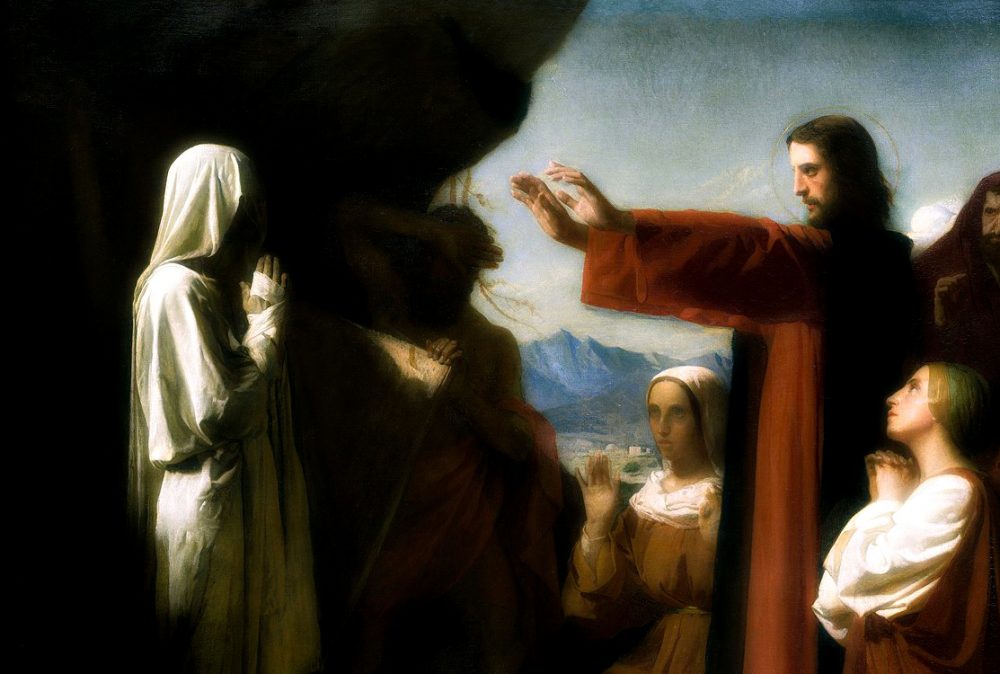Fr Paolo Consonni, MCCJ
O’Clarim Lent Fifth Sunday Year A
Last week, I concelebrated at the funeral of a 10-year-old boy. I was truly moved by the great faith shown by his family, especially his parents. The parish community, led by their parish priest, showed solidarity and affection by prayerfully participating in the liturgy. As you can imagine, it was a heartbreaking experience. It’s not fair to die at such a young age. But let’s be honest: no matter the age, it’s never easy to accept death.
We all have to die: this is one of life’s basic truths. Yet, we also experience death as unnatural, as our greatest enemy. It’s not an irrational thought, after all. Made in the image of God and called to enter into a loving relationship with Him, we were not destined by God to suffer and to die (cf. CCC 376). We naturally thirst for eternity, for the state of “beatitude” which is the goal of human existence (cf. CCC 1719). Only after the original sin, suffering and death made their entrance into our human history, a tragic twist of God’s original plan. We were created for communion, but death brought separation instead. No wonder we all experience death as the ultimate obstacle to our natural desire for happiness. Paradoxically, we still blame God for this destiny, seen as an unavoidable punishment.
Gripped by fear, we use all means at our disposal to exorcise the thought of death: power, pleasure, knowledge and science, religious sublimations, nihilist thinking (nothing has value), all kinds of distractions… uselessly, because at the end we all need to face the tragedy of death.
Therefore, we are truly comforted by Jesus’ reaction in front of the tomb of his friend Lazarus. This Sunday’s Gospel (Jn 11:1-45) vividly narrated that Jesus wept, “greatly disturbed in spirit and deeply moved” (v. 33). Seeing such a display of affection, people exclaimed: “See how he loved him!”. Jesus’ emotions finally restore the image of God as the giver of life, not of death. A poem with the bold title “You are not an evil God” by a contemporary Italian poet, D. M. Turoldo, says: “But you, God, are not fond of death / You came down among us / to scare away death / to hunt down and destroy death. / Death hurts you too, / that’s why you are a friend of every person touched by evil and pain, / and you want to partake of each one of them. / Just a blunder, or bitter misunderstanding / —when it’s not foolishness — / makes us say about you: / “God is Divine Indifference”. Jesus’ tears wash away the false image of a cruel God who abandons us in our darkest hour.
“Lazarus, come out!”, Jesus cried in a loud voice in front of his tomb. What followed —Lazarus resurrection— is not a shortcut granted to a lucky person to bypass the painful experience of death. This would make no sense: after all, Lazarus did not become immortal and he needed to face death once again. Only in the light of Christ’s death and resurrection can we understand this miracle. He did not save Lazarus “from death”; He instead saved him, and each of us, from “within the experience of death”. By dying for us, Christ enlightened death’s darkness with the light of His Presence: “No one has greater love than this, to lay down one’s life for one’s friends. You are my friends” (Jn 15:13-14). By rising from the dead, He defeated the power of evil which uses the fear of death to separate us from God. His love transformed death from being a place of solitude to become the door leading to an unbreakable communion: a total participation in God’s own life through Grace.
Thus, Jesus’ own death and resurrection gives us the motivation not only to courageously accept death but also to meaningfully live our life as a gift of love, like Jesus, in the logic of the grain of wheat, that “unless falls into the earth and dies, it remains just a single grain; but if it dies, it bears much fruit”. (Jn 12:24). Through the miracle narrated in today’s Gospel, Jesus offered to all those present at Lazarus’ tomb, and to all of us listening, the gift of faith necessary to follow Jesus in life as well as in death; in our daily choices as well as in our last breath. Faith that His Love is stronger than evil and death.
“I am the resurrection and the life. Those who believe in me, even though they die, will live, and everyone who lives and believes in me will never die. Do you believe this?” (Jn 11: 25-27). Martha chose to believe. The priest celebrating the boy’s funeral asked the same question to his parents and to all those attending the funeral. This last part of the journey of Lent wants to help us to give Jesus our own answer.


 Follow
Follow


